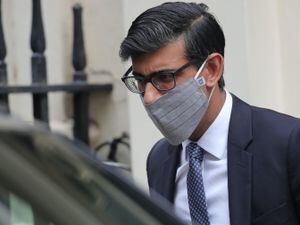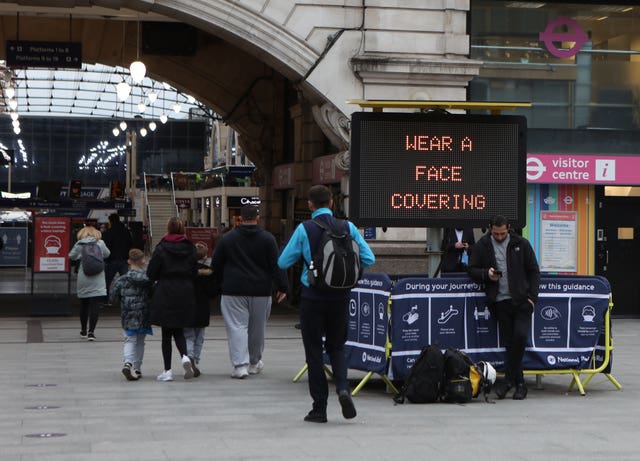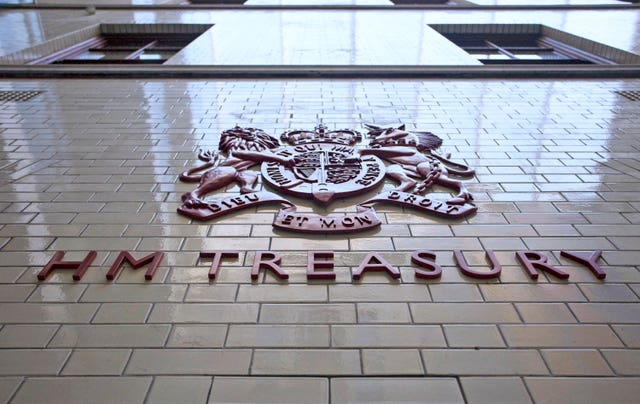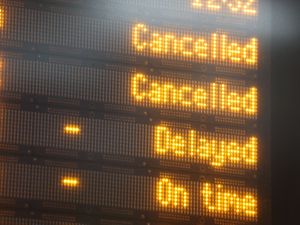How much has Covid cost Government departments?
The pandemic has forced ministers to loosen the purse strings.

The Government has spent tens of billions of pounds so far to combat the effects of the Covid-19 crisis.
On Thursday, Chancellor Rishi Sunak announced more further financial support for businesses, including those affected by Tier 2 local lockdown measures, in a package which could cost the Exchequer around £13 billion over the next six months.
Below are the projects that are estimated to cost more than £1 billion, according to publicly available sources.
Department for Business, Energy & Industrial Strategy
£12.4 billion – The Small Business Grant Fund, and the Retail, Hospitality and Leisure Grant Fund
£16 billion – Bounce Back Loan Scheme (BBLS)
£1.7 billion – Trade Credit Reinsurance Scheme
Department for Digital, Culture, Media & Sport
£1.5 billion – Cultural Recovery Fund (According to gov.uk website, October 17)
Department for Education
£1.8 billion – Schools rebuilding programme
£1 billion – Covid-19 catch-up fund

Department for Transport
£3.5 billion – Rail emergency measures
£1.6 billion – Transport for London (As confirmed by Transport Secretary Grant Shapps in the House of Commons, October 22)
Department of Health and Social Care
£15 billion (more than) – Personal protective equipment procurement to protect frontline staff
£12 billion – NHS Test and Trace programme (Mr Sunak in the House of Commons, September 24)
Department for Work and Pensions
£5.9 billion across multiple measures:
– Universal Credit: jobcentre attendance for new claimants to access advances
– Minimum income floor
– Access to Universal Credit
– Jobcentre attendance and other claimant commitments relaxed
– Increasing housing support
– Suspension of recovery of benefit overpayments
£5.5 billion – Universal Credit standard allowance
Foreign & Commonwealth Office
£1.2 billion – Income Tax self-assessment
£1.5 billion – Working Tax Credit Basic Element
£15.2 billion – Self-Employment Income Support Scheme
£3.8 billion (HM Treasury) or £2.5 billion (Office for Budget Responsibility) – Temporary Stamp Duty Land Tax cut
HM Revenue & Customs
£1 billion – Delaying the reform of the off-payroll working rules
£47 billion – Coronavirus Job Retention Scheme
£1.9 billion – Deferring £38 billion of VAT payments
£9.4 billion (HM Treasury) or £6.1 billion (Office for Budget Responsibility) – Coronavirus Job Retention Bonus Scheme
£4.1 billion (HM Treasury) or £2.5 billion (Office for Budget Responsibility) – Reduced rate of VAT for the hospitality sector, accommodation and attractions

HM Treasury
£12.7 billion – Support to the devolved administrations
£11.8 billion – Business rates holidays for retail, hospitality and leisure sectors, and for nurseries
Ministry of Housing, Communities & Local Government
£3.7 billion – Non-ringfenced funding to support pressure on social care in local government
Unless otherwise stated, figures are estimated costs taken from the National Audit Office’s Covid-19 cost tracker of September 8.





